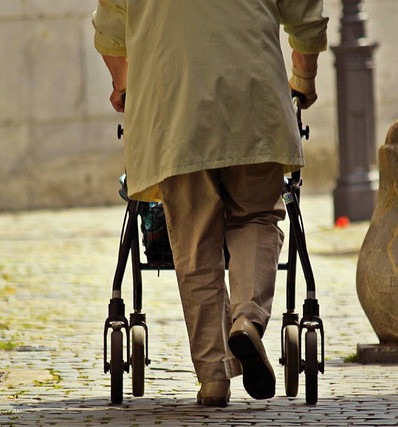Caregivers play a vital role in the lives of their loved ones, providing support and assistance with daily activities. However, caregiving can be physically and emotionally demanding, and caregivers often need help managing their workload. Durable medical equipment (DME) can be a valuable resource for caregivers, assisting with tasks such as bathing, dressing, and transferring.

Types of Durable Medical Equipment for Caregivers
Many types of DME can be helpful for caregivers. Some of the most common types of DME include:
- Wheelchairs: Wheelchairs can provide mobility for people who are unable to walk independently. There are many types of wheelchairs available, including manual wheelchairs, power wheelchairs, and scooters. Increased mobility: Wheelchairs can provide patients with the ability to move around independently, which can give them a sense of freedom and independence. Improved social interaction: Wheelchairs can make it easier for patients to participate in social activities, such as going to the movies or visiting friends. Reduced pain: Wheelchairs can help to reduce pain by taking pressure off of the patient’s legs and feet. Improved posture: Wheelchairs can help to improve posture by keeping the patient’s spine in a neutral position. Prevention of injuries: Wheelchairs can help to prevent injuries by providing a safe way for patients to move around. Increased participation in activities of daily living: Wheelchairs can help patients to participate in activities of daily living, such as bathing, dressing, and eating. Improved quality of life: Overall, wheelchairs can improve the quality of life for patients by providing them with increased mobility, social interaction, and independence.
- Wa
 lkers: Walkers can provide support for people who are unsteady on their feet. Walkers come in a variety of styles, including rollators, quad walkers, and folding walkers. Increased mobility: Rollators and rolling walkers can help patients to move around more easily and independently. This can be especially beneficial for patients who have difficulty walking or who are at risk of falling. Improved balance: The support provided by rollators and rolling walkers can help patients to improve their balance. This can reduce the risk of falls and make it easier for patients to participate in activities of daily living. Reduced pain: The support provided by rollators and rolling walkers can help to reduce pain in the legs, hips, and back. This can make it more comfortable for patients to walk and participate in activities. Improved posture: The upright position of rollators and rolling walkers can help to improve posture. This can reduce back pain and other problems.
lkers: Walkers can provide support for people who are unsteady on their feet. Walkers come in a variety of styles, including rollators, quad walkers, and folding walkers. Increased mobility: Rollators and rolling walkers can help patients to move around more easily and independently. This can be especially beneficial for patients who have difficulty walking or who are at risk of falling. Improved balance: The support provided by rollators and rolling walkers can help patients to improve their balance. This can reduce the risk of falls and make it easier for patients to participate in activities of daily living. Reduced pain: The support provided by rollators and rolling walkers can help to reduce pain in the legs, hips, and back. This can make it more comfortable for patients to walk and participate in activities. Improved posture: The upright position of rollators and rolling walkers can help to improve posture. This can reduce back pain and other problems.
- Canes: Canes can provide support for people who have difficulty walking. Canes come in a variety of styles, including single-point canes, quad canes, and adjustable canes. They have some of the same benefits of increased mobility, improved balance, reducing pain and improving posture.
- Bathroom Safety Equipment: Bathroom safety equipment can help make bathing and showering safer for people who are at risk of falls. Some of the most common types of bathroom safety equipment include grab bars, bath mats, and shower chairs.
- Transfer Equipment: Transfer equipment can help people who are unable to walk independently transfer from one surface to another, such as from a bed to a wheelchair. Some of the most common types of transfer equipment include lift chairs, transfer benches, and sliding boards.
How Durable Medical Equipment Can Benefit Caregivers 
DME can benefit caregivers in a number of ways. Some of the benefits of using DME include:
- Reduced Stress: DME can help caregivers reduce stress by taking on some of the physical demands of caregiving. For example, a wheelchair can free up a caregiver’s hands so they can focus on other tasks, such as helping their loved one with dressing or bathing.
- Increased Independence: DME can help people who are receiving care maintain their independence. For example, a walker can help someone who is unsteady on their feet walk around their home safely. This can give them a sense of control and dignity, and it can also reduce the amount of help they need from their caregiver.
- Improved Safety: DME can help improve safety for both the person receiving care and the caregiver. For example, a bath mat can help prevent someone from slipping in the bathtub, and a transfer bench can help someone unable to walk independently transfer from a bed to a wheelchair safely.
- Increased Productivity: DME can help caregivers be more productive by freeing up their time to do other tasks. For example, a lift chair can help a caregiver move someone unable to walk independently from a bed to a wheelchair quickly and easily. This can free up the caregiver’s time so they can spend it on other activities, such as running errands or spending time with their loved one.
How to Choose the Right Durable Medical Equipment
When choosing DME, it is important to consider the specific needs of the person receiving care. Some factors to consider include:
- The person’s physical abilities: What type of mobility assistance does the person need? Are they able to walk with a little assistance, or do they need a wheelchair or walker?
- The person’s lifestyle: What activities does the person enjoy doing? Do they need DME that will allow them to continue participating in these activities?
- The person’s home environment: What type of DME will fit in the person’s home? Is there enough space for a wheelchair or walker?
- The person’s budget: How much can the person afford to spend on DME?

It is also important to talk to the person receiving care about their preferences when choosing DME. They may have certain features or styles that they prefer.
DME can be a valuable resource for caregivers, assisting with tasks such as bathing, dressing, and transferring. By choosing the right DME and using it safely, caregivers can reduce stress, improve independence, and increase safety for both themselves and the person they are caring for.
Call Equip Care Medical Equipment, we are equipped to serve all caregivers and can answer any questions you might have about DME! 580-332-3353.

